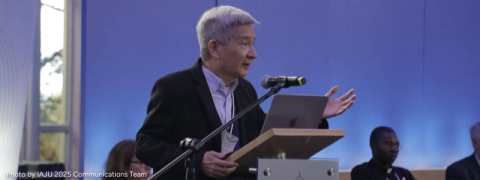Kritika Kultura lecture with Dr Mark Redondo Villegas of Franklin & Marshall College explores how Filipino Americans have reclaimed their space through hip hop
12 Nov 2024
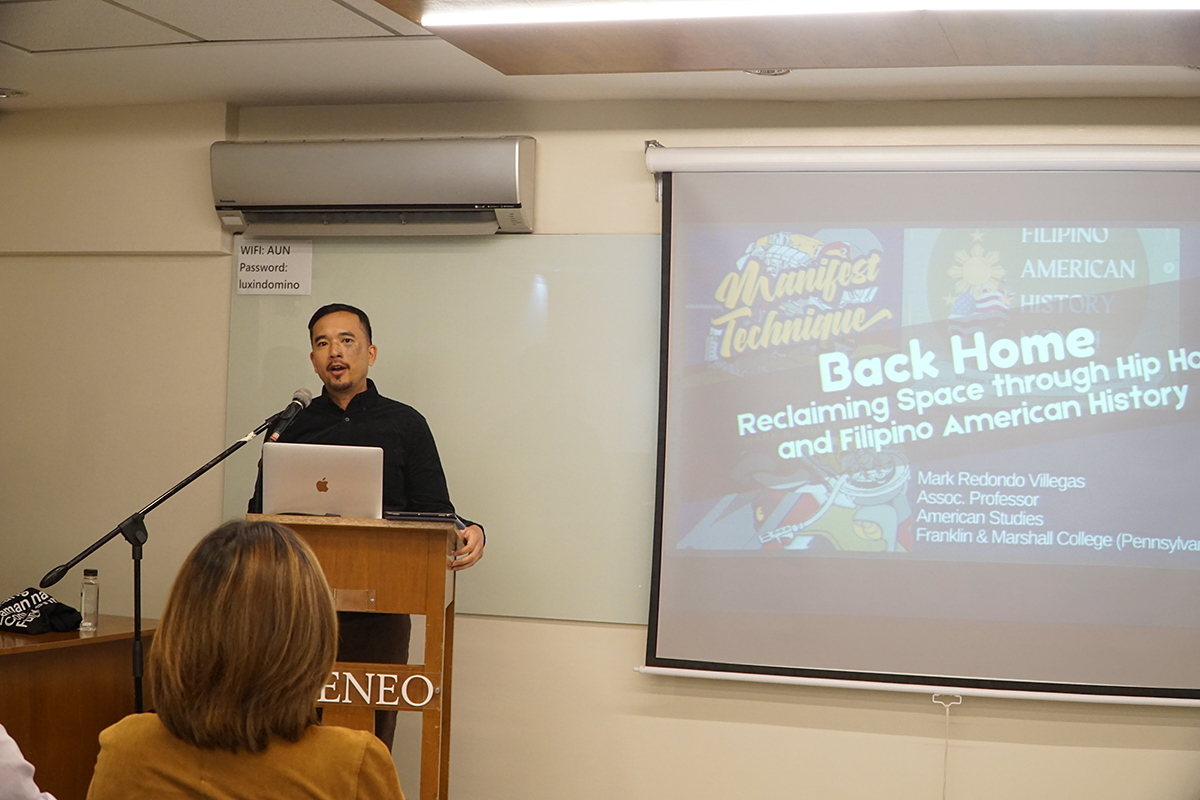 On 9 November 2024, Kritika Kultura, the international peer-reviewed journal of the Ateneo Literary and Cultural Studies Program, hosted a lecture titled "Back Home: Reclaiming Space Through Hip-Hop and American History." Delivered by Dr Mark Redondo Villegas from Franklin & Marshall College in Lancaster, PA, the lecture explored the relationship Filipino Americans have with hip-hop and the concept of "home."
On 9 November 2024, Kritika Kultura, the international peer-reviewed journal of the Ateneo Literary and Cultural Studies Program, hosted a lecture titled "Back Home: Reclaiming Space Through Hip-Hop and American History." Delivered by Dr Mark Redondo Villegas from Franklin & Marshall College in Lancaster, PA, the lecture explored the relationship Filipino Americans have with hip-hop and the concept of "home."
Dr Villegas is an associate professor in American Studies at Franklin & Marshall College. He is also the author of the 2021 book, "Manifest Technique: Hip Hop, Empire, and Visionary Filipino American Culture" (University of Illinois Press). The book examines Filipino Americans' decades-long commitment to crafting, worldmaking, and collaborating in hip-hop culture. He is also the co-editor of the anthology "Empire of Funk: Hip Hop and Representation in Filipina/o American" (Cognella Academic Press).
In his lecture, Dr Villegas highlighted the significance of hip-hop among several cohorts of second- and third-generation Filipino Americans.
He stated that black popular music and dance had been central to Filipino cultural expression since the earliest years of the American annexation of the Philippines.
Even early on, this contact had already begun to highlight the similarities between the struggle of both African Americans and Filipinos in the face of a white American culture, especially the belief of "Manifest Destiny" that was pervasive during the time. Of particular note was Carter G Woodson, the founder of what would eventually be Black History Month, who spent time in the Philippines in the 1900s.
Dr Villegas noted how Woodson reflecting on his own experiences teaching Filipino kids books and subjects very far removed from their own circumstances and history, may have helped inform his own actions later in life to launch "Negro History Week," which later became Black History Month, to deal with the similar erasure of his own African American culture.
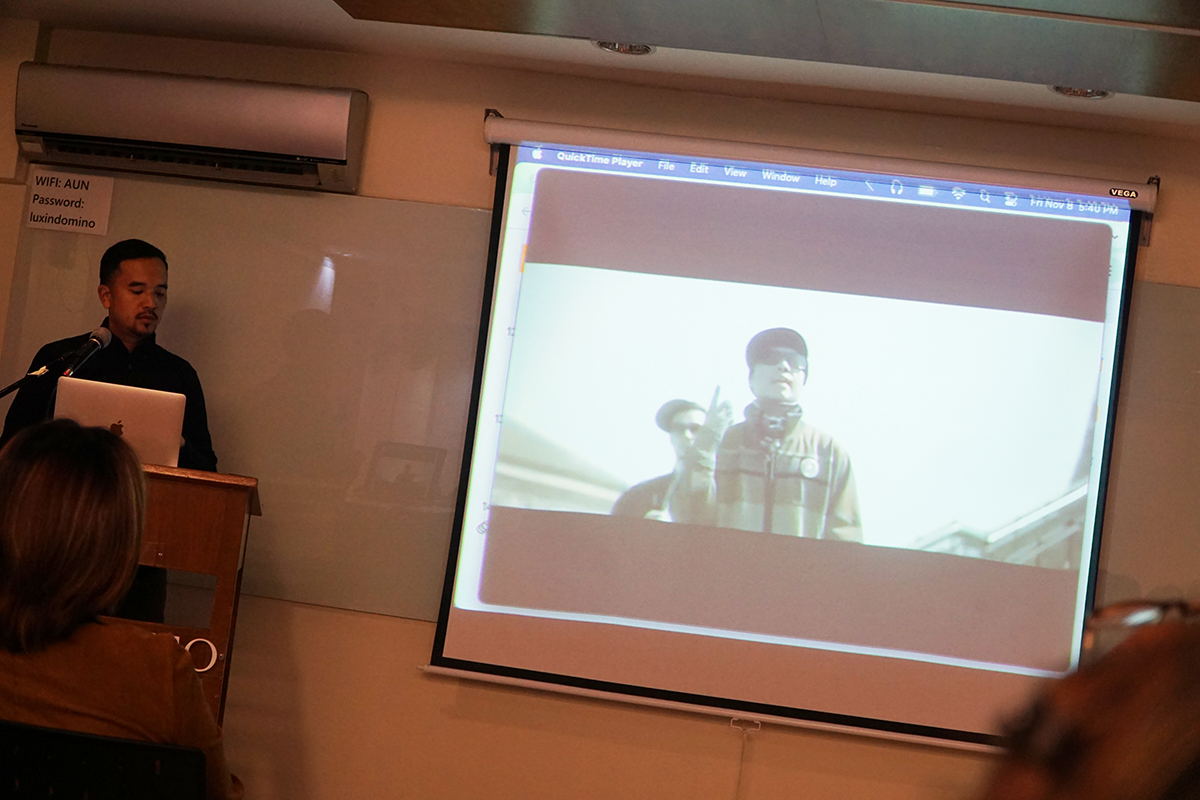
Because of this, Dr Villegas noted that once hip-hop became popularized in the 1980s, Filipino Americans – who had already interwoven within the diverse communities in the US – were already culturally equipped to excel in various forms of the genre.
In addition, beyond being just for entertainment, hip-hop became a crucial resource for Filipino Americans to reclaim space in a white-centric culture that, despite the US's entrenched history in the Philippines, tends to erase Filipinos altogether.
As such, hip-hop has become active in formalized Filipino American acts of ethnic memorialization. These include the numerous Filipino American hip-acts that have sprung up in various communities in the US as well as in Filipino American History Month (FAHM).
As part of this, Dr Villegas also discussed how Filipino American History Month, celebrated every October since it was started in 1991. Dr Villegas stated that FAHM and hip-hop have allowed Filipino Americans to mark themselves as present, while developing a language of resistance against marginalization, and build meaningful community – and home – with each other and with non-Filipinos in the US.
Following the lecture, Dr Villegas and the students and faculty in attendance engaged in a lively open forum that covered various topics, including the recent US presidential election, local hip-hop in comparison to Fil-Am hip-hop, and more.
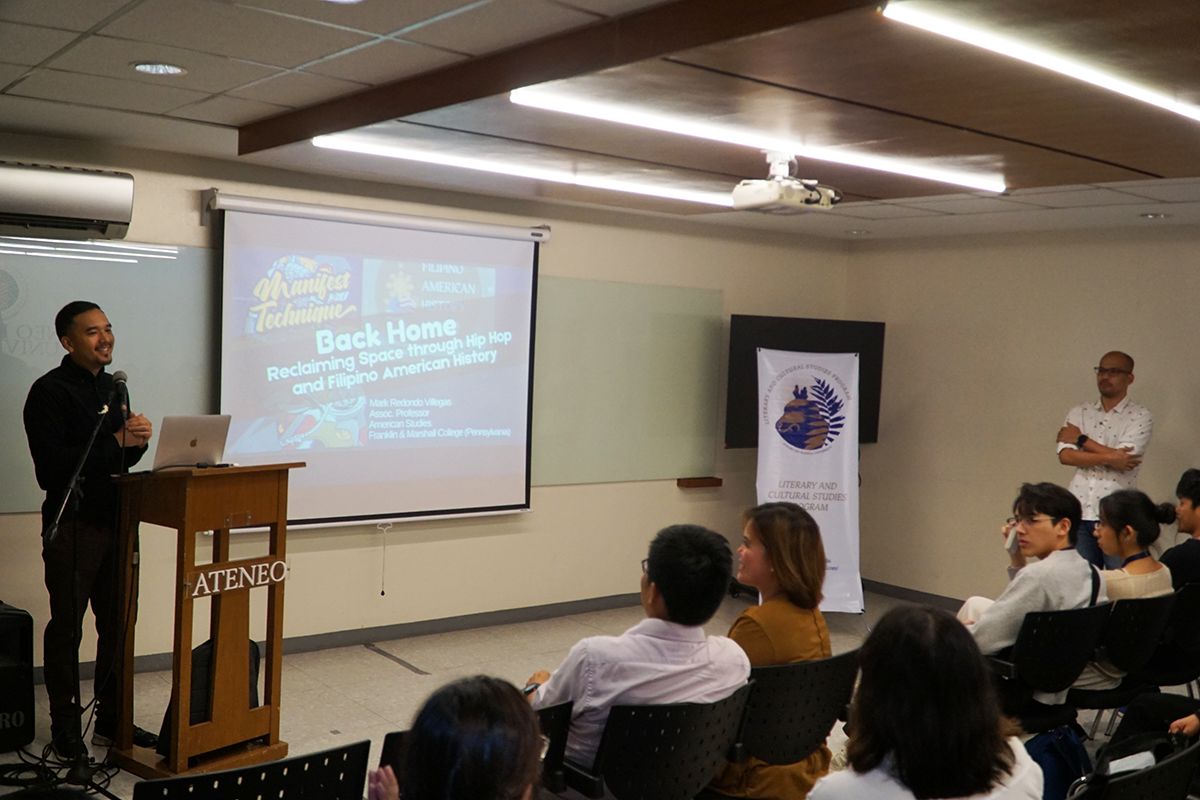
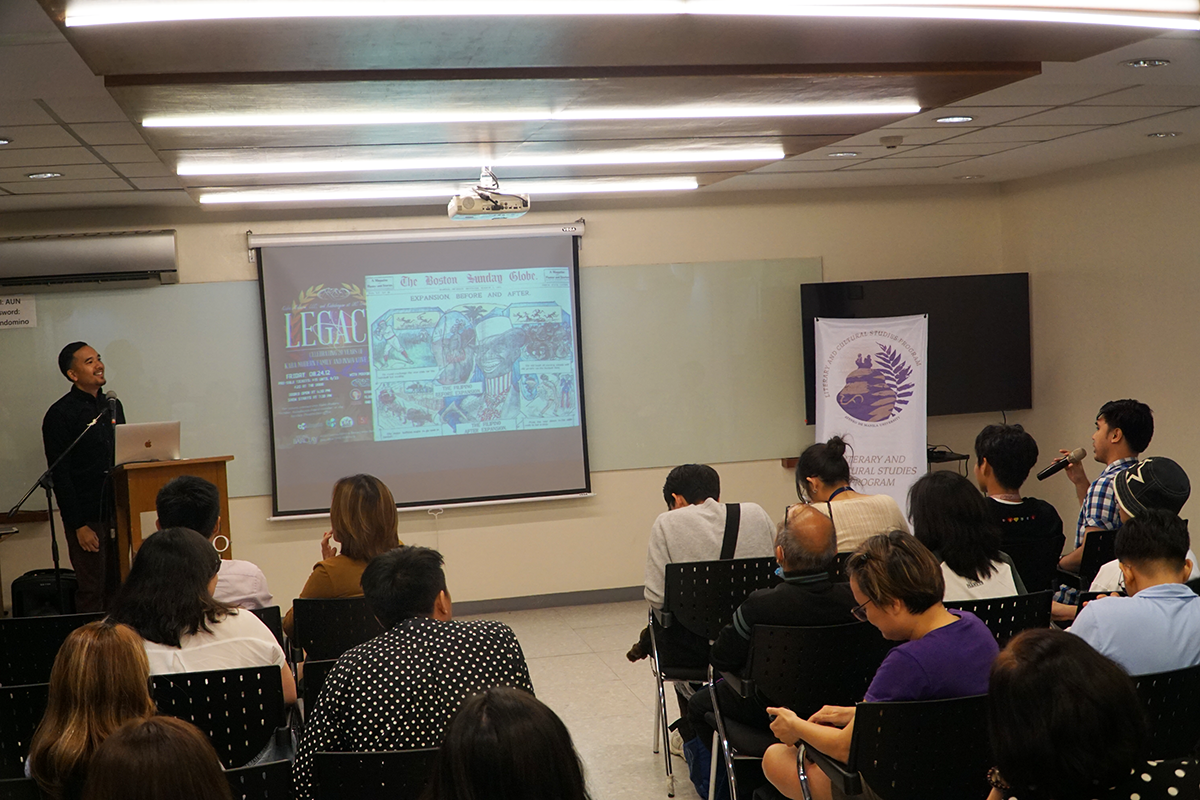
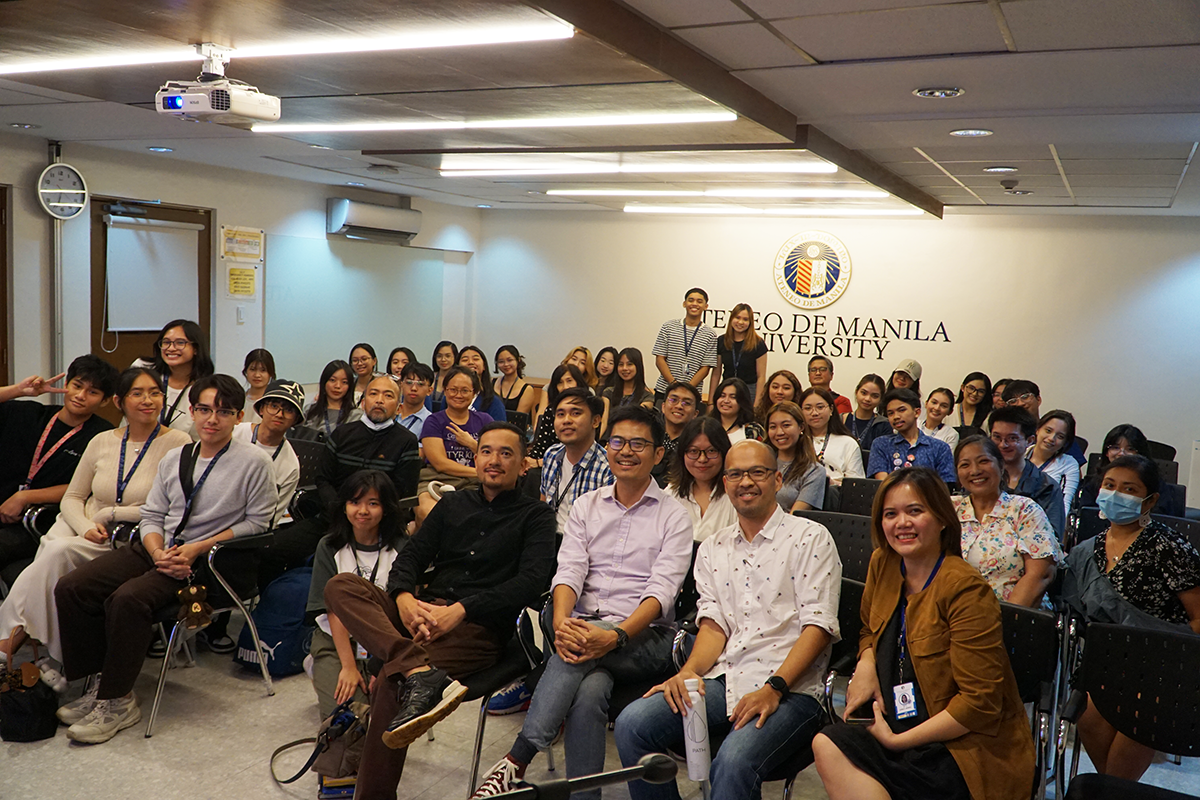

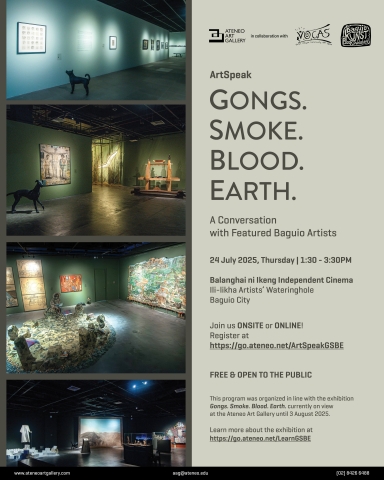
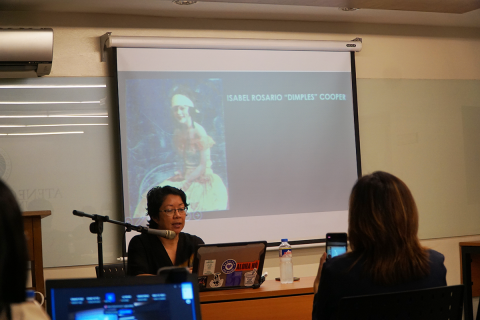
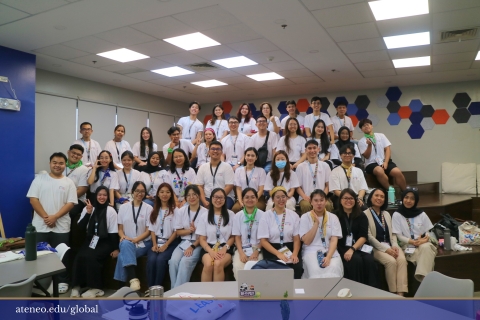
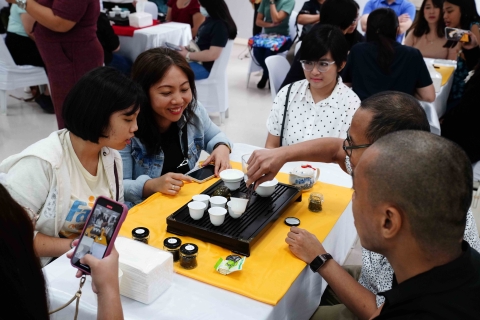
![[AAG] Art Workshops - Cosmic Garden Poster](/sites/default/files/styles/large/public/2025-07/%5BAAG%5D%20Art%20Workshops%20-%20Cosmic%20Garden%20v2.jpg?itok=Z52TVwDS)
